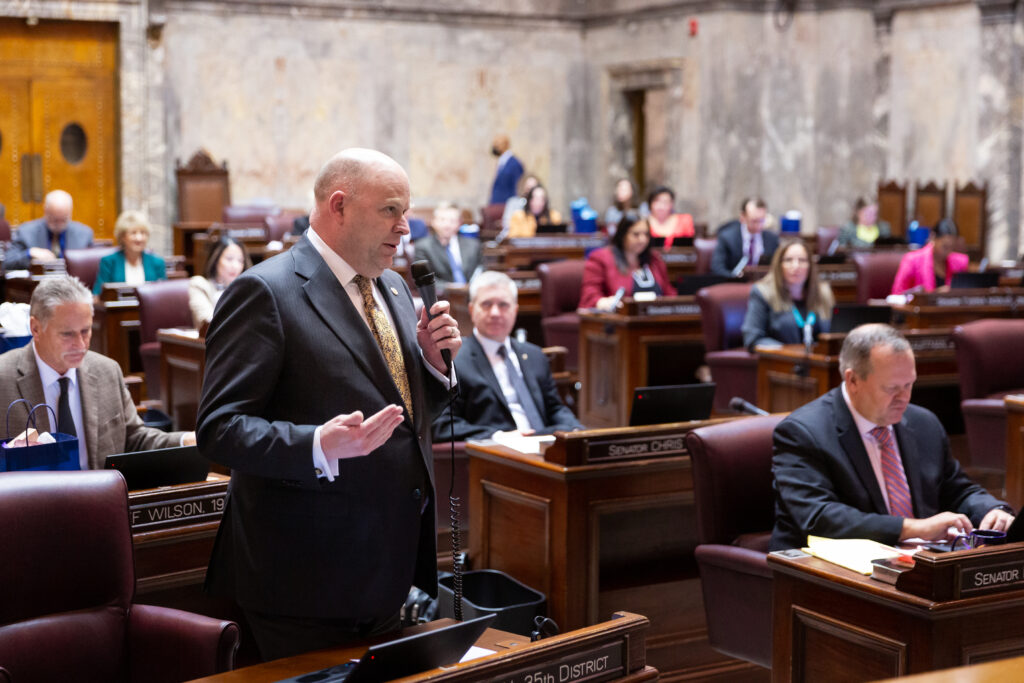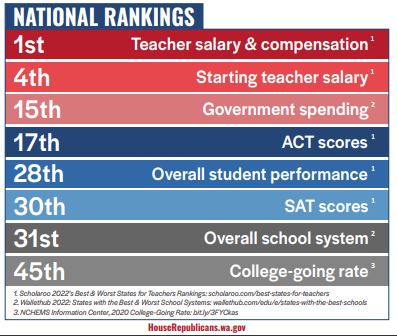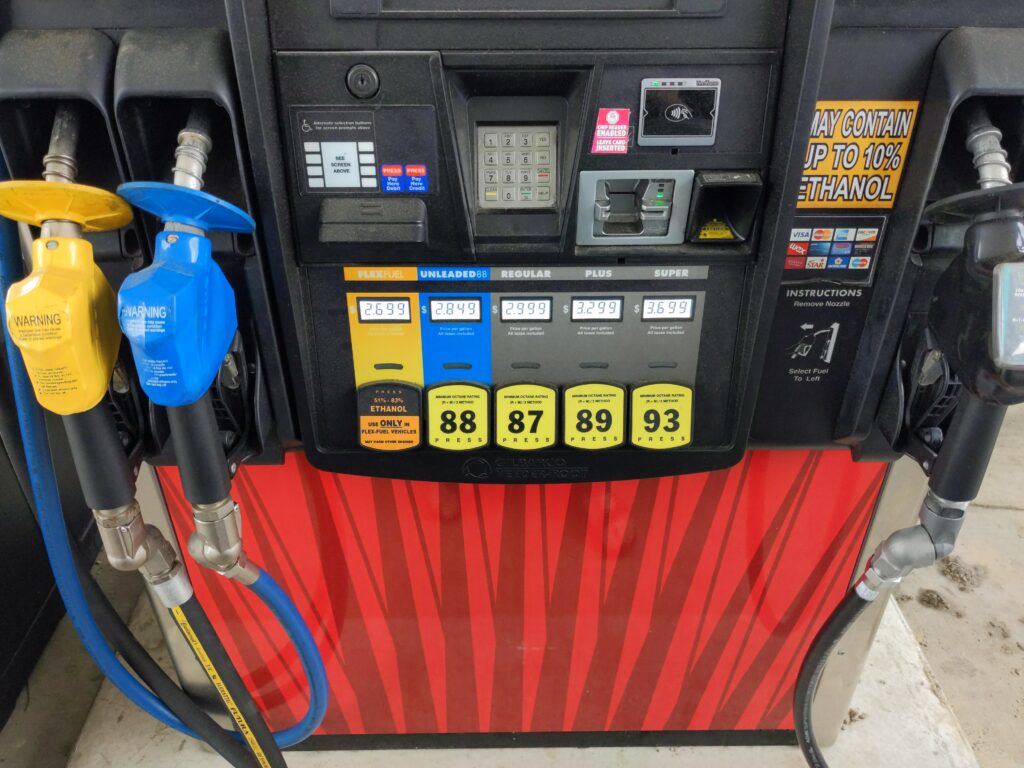Lawmakers begin correcting mistakes made two years ago on police pursuits, drug decriminalization — but need to go further
Note: The following e-newsletter was sent to Sen. Drew MacEwen’s subscribers March 17, 2023. To subscribe to Sen. MacEwen’s e-newsletter, click here.
Dear friends and neighbors,
Two weeks ago, a horrific accident in Eastern Washington offered a reminder that what we do in the Legislature affects people’s lives.
A Mustang blew past a state trooper on I-90 heading east near Ellensburg, and a Washington State Patrol officer pulled behind the car and flashed his lights. The driver sped up to 111 mph. The trooper was forced to drop back, because state law for the last two years has forbidden police pursuits except in certain limited cases.
Over the next hour, two more officers spotted the car moving at a high rate of speed, and the car sped away both times. Cops spotted the man in the Mustang gassing up in Sunnyside. As they called their supervisor for permission to approach, he took off, got on Interstate 82 going the wrong direction, hit another car head-on and killed two children, ages 6 and 8.
I wish I could say we have addressed the problem that led to this tragedy. Instead, we passed a bill in the Senate last week that goes only halfway toward restoring the tools police need in order to do their jobs. The incident shows us we need to do better, and I remain hopeful this bill will be strengthened in the House. The police pursuit issue is one of the most important before us this session, In this newsletter, I’ll give you a rundown on this and others we have dealt with during our 2023 legislative session.
Drew MacEwen
Senator, 35th Legislative District
The big picture – hundreds of bills are passed as deadline approaches
March 8 was ‘cutoff’ for most bills introduced in House and Senate
We spent most of the last few weeks on the Senate floor, passing bills one-by-one. Most bills introduced in the Senate needed to pass by March 8 in order to remain under consideration this session. We passed 280 bills in the Senate, and now we have a bit of breathing space while we consider the 331 bills the House sent over to us.
We have six weeks to go in our session – we are scheduled to adjourn on April 23. Next week we will see an operating budget proposal in the state Senate, and we will continue debating the budget through the end of session. For the Legislature, this is really the midpoint of the session, and it is a good time to take stock.
Police pursuit and drugs are top issues
Law enforcement is at the center of the year’s two biggest debates. One is restoring police pursuits, and the other is recriminalizing drug possession. There is a common thread to these issues. Two years ago majority Democrats in the Legislature went too far in weakening the hand of law enforcement. The result has been disaster.
On police pursuit, law enforcement officers are now prohibited in most cases from chasing suspects even when they have “reasonable suspicion” that a crime has been committed. Crime has gone through the roof – car thefts are up 50 percent – and criminal “drive-aways” have tripled as lawbreakers realize they don’t need to stop for red-and-blue flashers.
On hard-drug possession, we barely have any penalties at all. The law is so weak police have given up on arrests that might force addicts into the treatment they need. Meanwhile, fentanyl usage has exploded. Last week the Department of Health released new figures showing overdoses are the leading cause of death for Washington residents under age 60, bigger even than cancer.
Democrats came to us with proposals on both these issues that aren’t strong enough and do not fully restore the ability of police to do their jobs. The problem is that many on their side would prefer we do nothing at all. Republican votes were required if anything was to pass. This forced every member on our side of the aisle to make a difficult choice.
The pursuit bill (SB 5352) offers only a partial restoration of the rules police need to keep our communities safe. It does not restore pursuits for reckless driving, stolen vehicles or other non-violent offenses. The drug bill (SB 5536) turns possession of drugs like heroin and fentanyl into a gross misdemeanor, and if addicts fail to respond to treatment, eventually they may do jail time. I voted yes on both of these bills, to keep these issues alive and provide a pathway for passage of stronger legislation. The consequence of doing nothing is too great.
Other important votes
Teen trans runaways – One of our biggest arguments was on Senate Bill 5599, a measure that interferes with family relationships by allowing teenagers to stay in shelters or “host homes” without notifying parents, if they are seeking gender-changing therapy or treatment. It is difficult to imagine the anguish of parents who do not know why their child has disappeared. The bill passed 27-19, and has moved to the House for further consideration. As an expression of compassion, this bill goes too far, and I voted no.
Suits against firearms manufacturers – Senate Bill 5078 is an attempt to hold the firearms industry responsible for the actions of third parties – that is, for crimes committed with guns. This back-door effort to drive legal firearms from the marketplace would allow suits by the attorney general against gun manufacturers, dealers and distributors. This bill passed the Senate on a party-line vote, and is now in the House. I voted no. If this bill passes the Legislature, it is certain to face a challenge in federal court, and most likely will fail.
Funding for rural domestic violence shelters – Senate Bill 5398 is one of my proudest accomplishments this session, a bill that will assure adequate funding for Shelton’s Turning Pointe shelter and others. State funding currently is provided based on county populations, but rural shelters often serve a larger clientele, including those fleeing violent situations in cities. I led efforts to increase funding last year; this bill would launch a study of a permanent fix. (Read more here.)
Other bills I sponsored that won passage in the Senate included SB 5323, reforming procedures at the state Department of Veterans Affairs, and SB 5437, establishing processes for filling vacancies on boards and commissions.
Did you know…?
In K-12 education, money isn’t everything. We are number one for teacher compensation, but Washington is a cellar-dweller in student performance. Our colleagues in the House Republican Caucus have put together a fascinating analysis, and it is worth a read.
Developer gives up on Tenino sex predator home
Long-term solution still needed
Good news for South Thurston County — the developer of a proposed sex-predator home in the Tenino area has given up, following community protest and fast action by Thurston County officials on permit and zoning issues. The community was blindsided by the plan to transfer convicted sex predators from their secure facility on McNeil Island to a low-security group home, in an area lightly patrolled by law enforcement, alongside a lake utilized by schoolchildren. You can read more about this issue here.
I joined my fellow 35th District lawmakers, Reps. Travis Couture and Travis Griffey, in introducing bills that would improve community notification procedures and reexamine the state policy that is sending violent sex predators into light-security facilities statewide. This policy remains a problem in other areas of the state — a similar spate of protests has erupted in Enumclaw for the same reason. These bills did not receive votes before the March 8 deadline, but could be revived, and should be. The governor also should show leadership and place a moratorium on new community placements while the underlying policy is reconsidered.
Carbon auction twice as expensive as advertised
Higher gas prices one result — windfall for state, bad news for motorists, state economy
Advocates said “cap and trade” would not be costly when our Democratic colleagues voted to launch the program two years ago. I’m afraid the predictions were wrong. This is an issue I follow closely, as ranking Republican member of the Senate Environment, Energy and Technology Committee. The state finally held its first auction for carbon “allowances” on Feb. 28, and it generated $300 million, twice as much as predicted.
Advocates are calling this great news, and the Legislature is considering ways to spend this windfall. But we should remember that this extra money comes from industry and from people like you and me. If these auction prices hold, this new program will add 39 cents to the cost of a gallon of gasoline, 47 cents for diesel. The only question is how much of this increased cost will be passed on to the consumer. Since the beginning of the year, gas prices in Washington already have risen about a quarter higher than other states. At the very least, we need to make sure this extra money is spent responsibly. For more detail, click here.
Contact me!
 My most important duty is to serve you. I hope you will contact me or my legislative assistant, Rob Barnes, if you have any concerns about state government, or a problem with a state agency.
My most important duty is to serve you. I hope you will contact me or my legislative assistant, Rob Barnes, if you have any concerns about state government, or a problem with a state agency.
Phone: (360) 786-7668
Email: Drew.MacEwen@leg.wa.gov
Mail: P.O. Box 40435, Olympia, Wash. 98501
Leave a message on the Legislative Hotline: 1-800-562-6000















